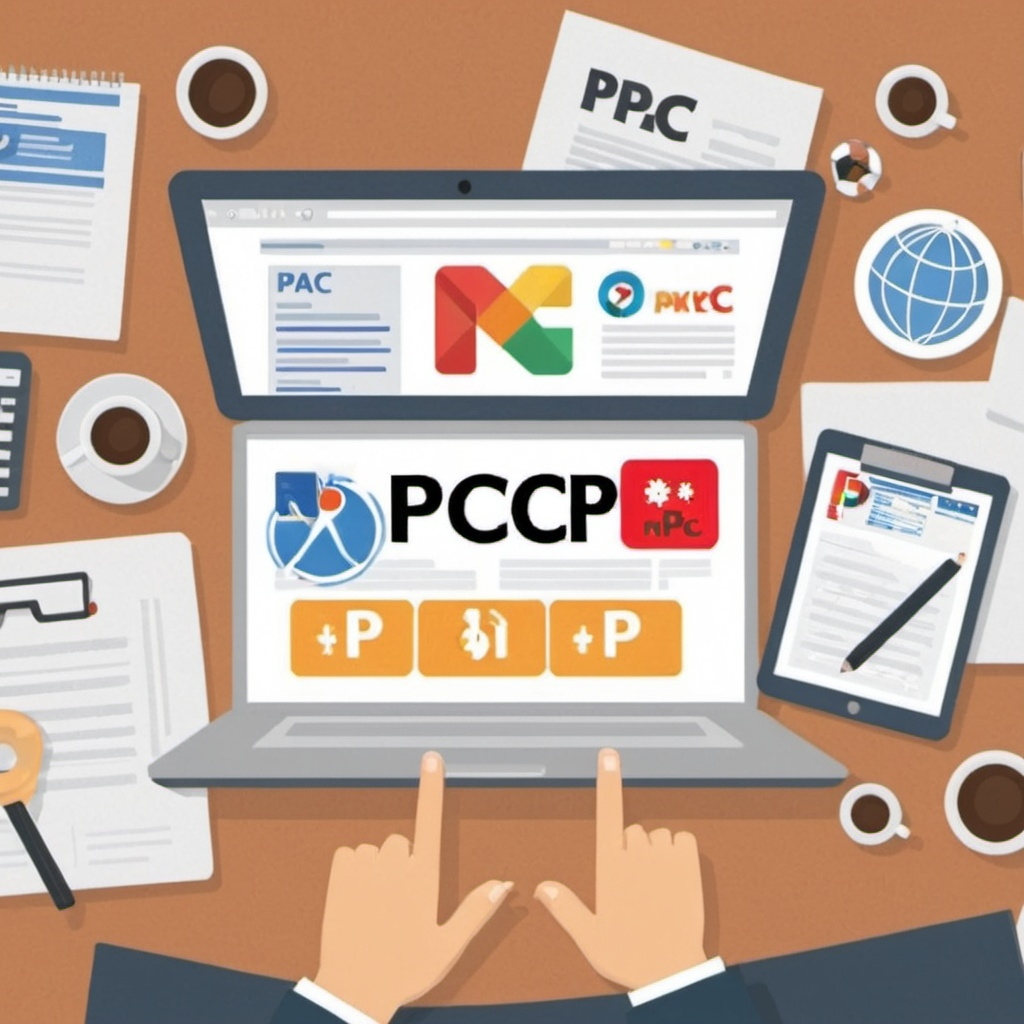Are you an affiliate marketer looking for a way to boost your income? Do you want to connect with top-paying companies and increase your commissions? If so, Pay-Per-Click (PPC) advertising might be the solution you need. In this guide, we’ll discuss how to use PPC advertising to enhance your affiliate marketing efforts. We’ll cover everything from the basics to advanced tips, to ensure you understand everything.

What is PPC Advertising?
PPC advertising is a form of online marketing where you pay a fee each time someone clicks on your ad. Unlike organic search traffic, PPC allows you to buy visits to your site. Here’s how it works:
- Create an Ad: You create an advertisement and choose keywords related to your product or service.
- Set a Budget: You set a daily or monthly budget for how much you’re willing to spend.
- Bid on Keywords: You bid on keywords, and the amount you bid determines your ad’s placement.
- Get Clicks: When someone clicks on your ad, you pay the bid amount.
PPC is a fast way to drive traffic to your website and can be incredibly effective for affiliate marketers.
Why Use PPC for Affiliate Marketing?
Using PPC for affiliate marketing has several benefits:
- Immediate Traffic: Unlike SEO, which can take months, PPC provides immediate traffic.
- Targeted Audience: You can target specific demographics, interests, and locations.
- Control: You have control over your budget, ad copy, and targeting.
- Measurable Results: You can track your ad performance and make adjustments as needed.
Setting Up Your PPC Campaign
To get started with PPC for affiliate marketing, follow these steps:
- Choose a PPC Platform: Google Ads is the most popular, but you can also use Bing Ads, Facebook Ads, or other platforms.
- Create an Account: Sign up for an account on your chosen platform.
- Define Your Goals: What do you want to achieve? More clicks, conversions, or sales?
- Keyword Research: Use tools like Google Keyword Planner to find relevant keywords.
- Write Compelling Ads: Write clear, concise, and engaging ads that include your keywords.
- Set Your Budget: Decide how much you’re willing to spend daily or monthly.
- Launch Your Campaign: Review everything and launch your campaign.
Choosing the Right Keywords
Keywords are crucial for your PPC campaign’s success. Here’s how to choose the right ones:
- Relevance: Choose keywords that are relevant to your product or service.
- Search Volume: Look for keywords with a high search volume but low competition.
- Long-Tail Keywords: Use longer, more specific keywords that are less competitive.
- Negative Keywords: Exclude keywords that are not relevant to avoid wasting money.
Writing Effective Ad Copy
Your ad copy is what will attract clicks. Here’s how to make it effective:
- Headline: Make it catchy and relevant.
- Description: Clearly describe what you’re offering.
- Call to Action (CTA): Include a strong CTA, like “Buy Now” or “Learn More.”
- Ad Extensions: Use ad extensions to provide more information, like site links or contact info.
Optimizing Your Landing Page
Your landing page is where visitors land after clicking your ad. It needs to be optimized to convert visitors into customers. Here’s how:
- Relevance: Ensure your landing page matches the ad and keywords.
- Clear CTA: Have a clear and compelling CTA.
- Simple Design: Keep the design simple and easy to navigate.
- Mobile-Friendly: Ensure your landing page is mobile-friendly.
Tracking and Analyzing Your Campaign
Tracking and analyzing your campaign is essential to understand what’s working and what’s not. Here’s what to do:
- Use Analytics Tools: Use tools like Google Analytics to track your performance.
- Monitor Key Metrics: Keep an eye on metrics like click-through rate (CTR), conversion rate, and cost per click (CPC).
- A/B Testing: Test different ads, keywords, and landing pages to see what performs best.
- Adjust and Optimize: Continuously adjust your campaign based on the data you collect.
Common Mistakes to Avoid
To maximize your success, avoid these common PPC mistakes:
- Ignoring Negative Keywords: Not using negative keywords can waste your budget on irrelevant clicks.
- Overbidding on Keywords: Spending too much on high-competition keywords can drain your budget quickly.
- Not Testing Ads: Failing to test different ad variations can lead to missed opportunities.
- Ignoring Mobile Users: Many users are on mobile devices; ensure your ads and landing pages are mobile-friendly.
- Poor Landing Page Experience: A bad landing page can result in high bounce rates and low conversions.
Advanced Tips for PPC Success
Once you’ve got the basics down, here are some advanced tips to boost your PPC success:
- Retargeting: Show ads to people who have previously visited your site to increase conversions.
- Use Ad Extensions: Add extra information to your ads to make them more appealing.
- Dynamic Keyword Insertion: Automatically insert the searcher’s query into your ad to make it more relevant.
- Geotargeting: Target specific locations to reach the right audience.
- Time Scheduling: Show your ads at times when your audience is most active.
Conclusion
Using PPC advertising for affiliate marketing can significantly boost your traffic and commissions. By choosing the right keywords, writing compelling ads, optimizing your landing pages, and continuously tracking and adjusting your campaign, you can achieve great results. Avoid common mistakes and implement advanced strategies to take your affiliate marketing to the next level. Remember, PPC is an investment, and with the right approach, it can provide a substantial return.
Start your PPC campaign today and watch your affiliate marketing efforts soar!